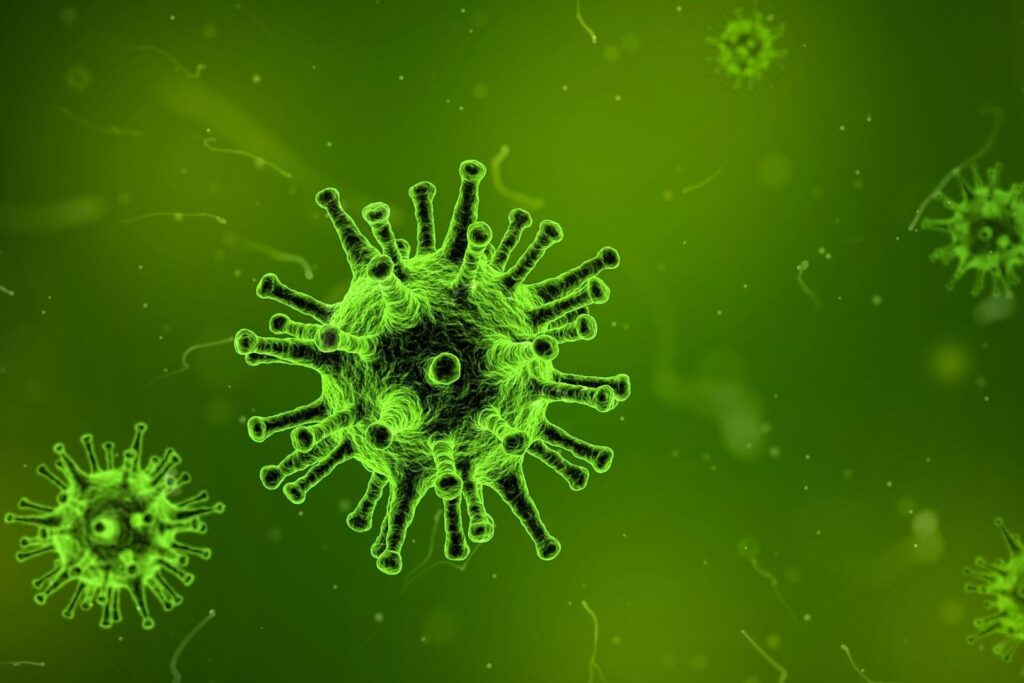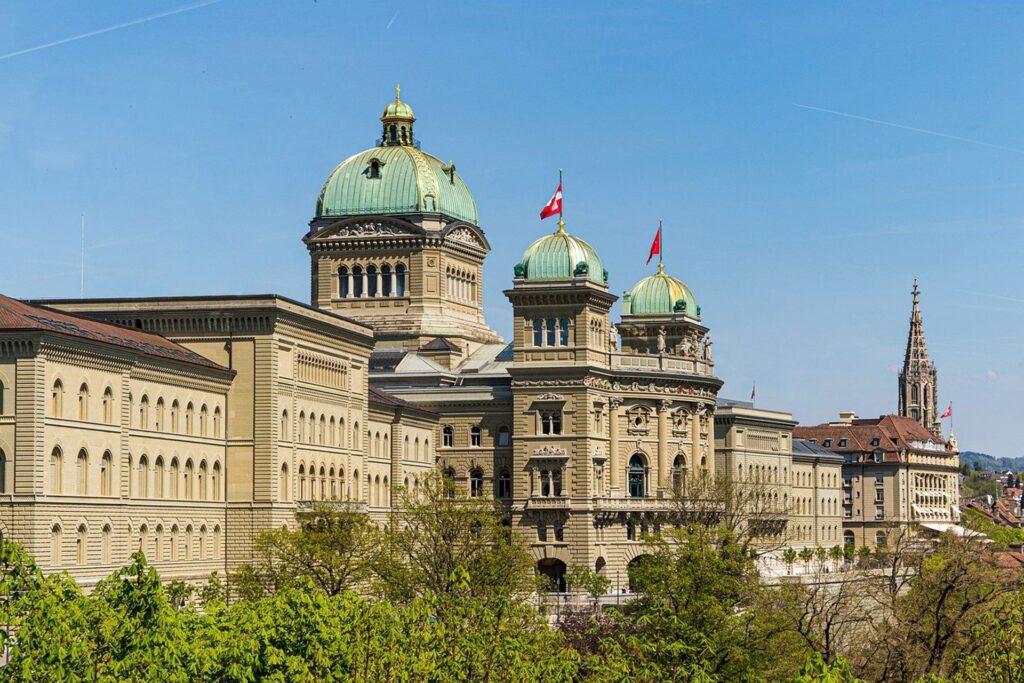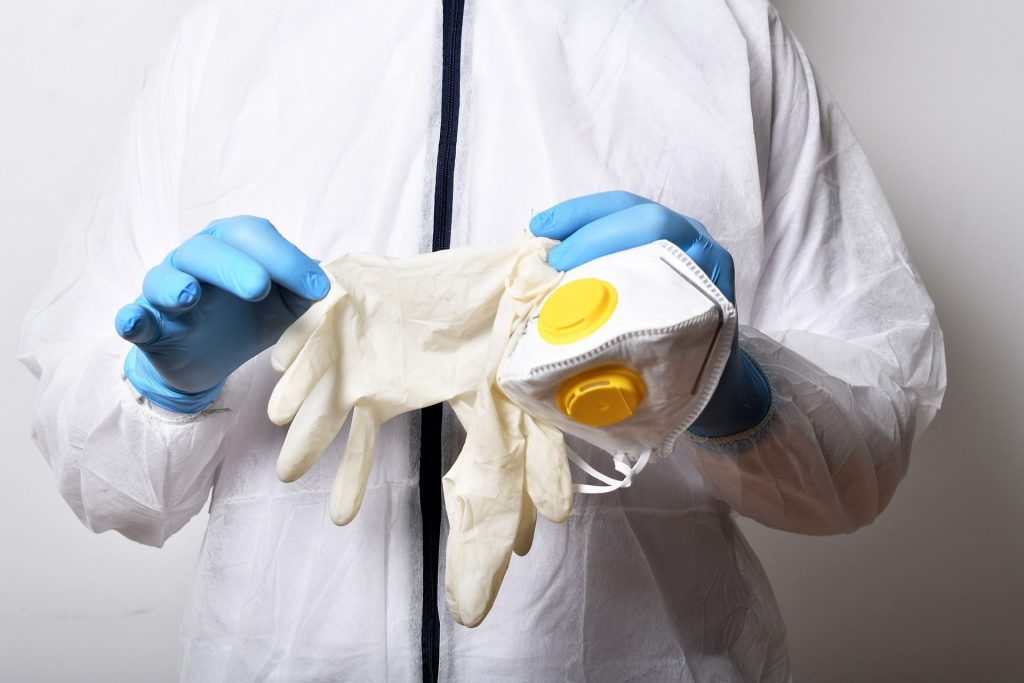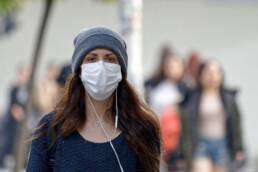COVID: two different scenarios for “end of restrictions” in Switzerland
No quarantine and home office mandatory as of February 3, but the Federal Council could already send the pandemic to the archives by mid-month…
At its meeting on February 2, 2022, the Federal Council decided to revoke from the following day, Thursday, February 3, the obligation of home office and the quarantine of contacts.
In addition, the Federal Council has put in consultation until February 9 extensive relaxations on which it will decide on February 16, depending on the evolution of the epidemiological situation.
The Federal Council has noted a positive development of the situation in hospitals. Although the number of infections is at record levels, there has been no overloading of facilities and bed occupancy in intensive care units has fallen further.
The “new” COVID19 Law passes the Swiss people’s scrutiny

A high rate of immunization due to several factors
One of the reasons for this evolution is probably the high rate of immunization achieved by the population through vaccination or antibodies produced after contracting the disease.
With the Omicron variant there are also fewer severe courses than with the previous variants. More and more signs seem to indicate an imminent end to the acute phase of the crisis and the subsequent transition to the endemic phase.
The Federal Council is of the opinion that the time has come to relax the restrictions against the spread of the coronavirus and has decided to lift the telework obligation and the quarantine with immediate effect and to put further important relaxations into consultation. However, we must continue to remain vigilant.
Innovative Start Up/PMI Award also beats COVID19!

Revocation of home working and part of social distancing
The telecommuting requirement is changed to a recommendation. Employers continue to be obliged to protect their employees from infection. Teleworking is an effective measure in this regard. The requirement for a face mask in the workplace is maintained.
The contact quarantine is lifted for the first time since the beginning of the crisis. On January 12, the Federal Council had already shortened it and restricted it to persons living in the same household.
With the sharp increase in the number of infections, this measure has lost its effectiveness. As a result of this decision, the provisions of the COVID-19 loss of earnings ordinance on compensation for loss of earnings in the event of contact quarantine are also repealed.
However, those who test positive for SARS-CoV-2 and thus carry a high viral load remain required to go into isolation to avoid infecting others.
The two measures were the subject of a previous consultation and enter into force on Thursday, February 3. With the new ordinance, all quarantines ordered by the cantons are lifted with immediate effect. An explicit revocation by the cantons is not necessary.
Compensation for loss of earnings COVID: extended entitlement

Two types of repeal of remaining measures in consultation
The cantons, social partners, parliamentary commissions and interested associations have until 9 February to express their opinion on the repeal of the remaining measures.
The Federal Council proposes two variants depending on when the peak of the epidemic wave is reached and will make a decision at its meeting on 16 February.
Krisen wie diese werden nicht mit einem Paukenschlag beendet, sondern Schritt für Schritt. Die Entwicklung ist positiv, aber wir müssen den eingeschlagenen Weg bis zum Ende gehen. Mit Freude und Erleichterung, vorsichtig und bescheiden. Noch ist die Pandemie nicht vorbei. https://t.co/IMxKdMxpVF
— Alain Berset (@alain_berset) February 2, 2022
Variant 1: Block revocation of measures
The COVID-19 special situation ordinance could be revoked en bloc on February 17. However, a complete reopening entails epidemiological risks, since it could accelerate the circulation of the virus again.
This option only comes into consideration if the peak of the epidemic wave has been overcome. The immunization rate of the population must be sufficient and the number of infections and hospitalizations must be declining.
All protective measures would be revoked, in particular:
– the obligation to have a certificate in restaurants, at events and in cultural and leisure facilities;
– the requirement to wear a mask on public transport, in stores and in all enclosed places accessible to the public;
– limitations on private gatherings;
– a permit requirement for large events.
However, the protection plan for the organization of large events will have to remain in force, since new restrictions cannot be ruled out.
The obligation to isolate those who test positive for SARS-CoV-2 should also remain in place. In addition, additional measures will have to be taken to protect people at particular risk.
In addition, the Federal Council will ask the cantons whether the obligation to wear a mask on public transport, in the retail trade and in healthcare facilities should be maintained.
Une crise comme celle-ci ne se résout pas d’un coup. Il faut y aller pas à pas. L’évolution est positive, mais il ne faut pas brûler les étapes. Soyons confiants et sereins, mais restons prudents et modestes. La pandémie n’est pas encore derrière nous. https://t.co/UDqJMMmwJT
— Alain Berset (@alain_berset) February 2, 2022
Crisi come questa non si risolvono di punto in bianco, ma passo dopo passo. L’evoluzione è positiva, ma dobbiamo percorrere fino in fondo il cammino iniziato. Con ottimismo e sollievo. Con prudenza e senza eccessi. La pandemia non è ancora finita. https://t.co/S1FPpipTPm
— Alain Berset (@alain_berset) February 2, 2022
Variant 2: Two-stage withdrawal of measures
Should the epidemiological situation on February 16 still be too uncertain, the Federal Council intends to proceed in stages so that the situation can be assessed after each relaxation.
In a first step, the Federal Council proposes the following relaxations from February 17:
– revocation of the certificate requirement in restaurants, at events, cultural and leisure facilities; in restaurants the requirement to consume while seated will continue to apply;
– lifting of restrictions on private gatherings;
– Lifting of the permit requirement for large open-air events; the cantons may decide whether to introduce such a requirement, for example for carnival celebrations;
– 2G” rule where the “2G+” rule currently applies (discos, indoor swimming pools, intensive sports activities, music with wind instruments).
In a second phase, the remaining protective measures will be lifted: the mask requirement, the “2G” rule and the permit requirement for large indoor events. The transition to the second phase will lead to the repeal of the COVID-19 ordinance in a special situation.
COVID certificate ordinance adopted in Switzerland

Consultation on further measures
Parallel to the lifting of the measures, the Federal Council is also putting further adjustments out to consultation.
Border health measures will no longer apply to persons entering Switzerland, i.e. the obligation to test unvaccinated or untreated persons and the registration of contact data upon entry into Switzerland can be lifted.
In addition, the so-called Swiss COVID certificates, e.g. certificates for tourists or those issued following a rapid antibody or antigen test, are to be revoked. Certificates recognized by the European Union will continue to be issued.
These must be retained for international travel as long as other states apply entry restrictions. It is also possible that a COVID certificate will continue to be required for access to restaurants or museums in certain countries.
Finally, the Federal Council is placing new requirements for the assumption of the cost of outpatient treatment medications on COVID-19 for consultation.
Here’s how Switzerland’s COVID certificate will work







